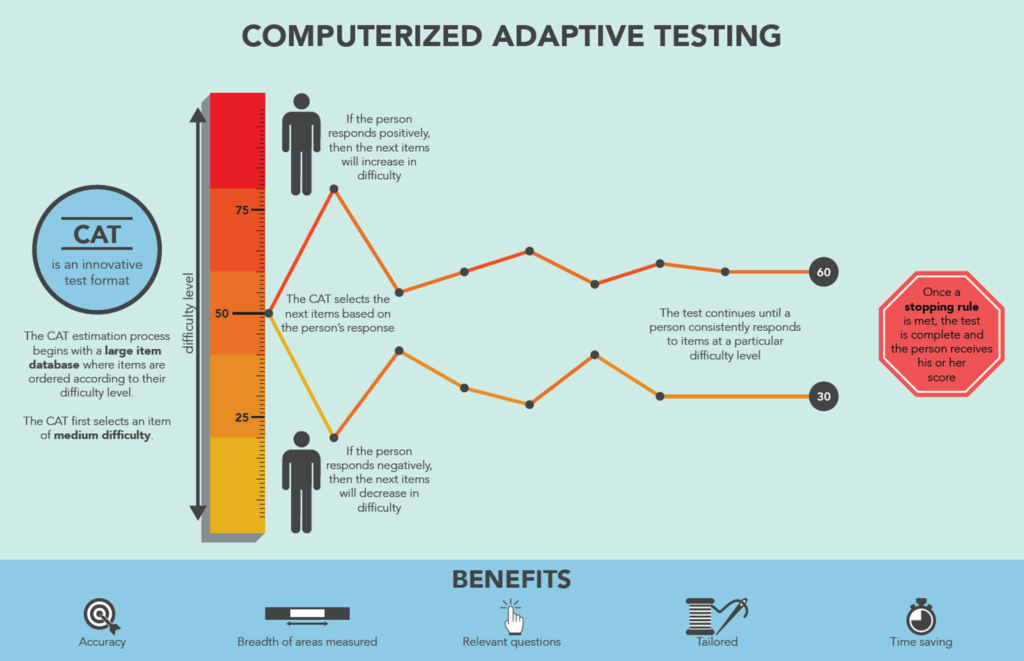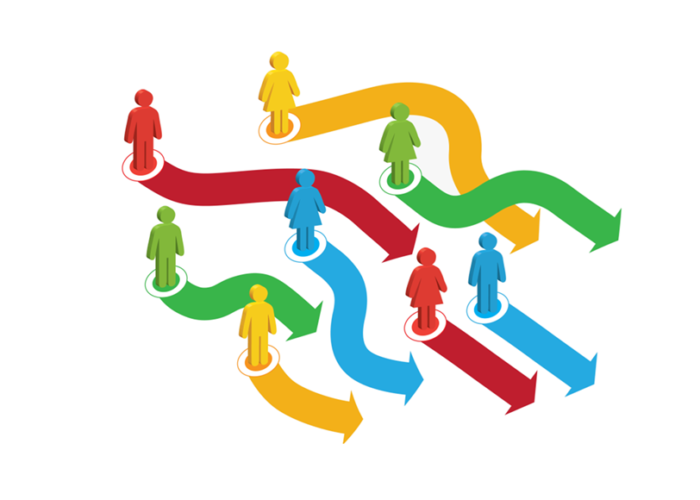In the ever-evolving landscape of education, assessment methods play a pivotal role in gauging student proficiency and understanding. One groundbreaking approach that has gained prominence in recent years is Computerized Adaptive Testing (CAT). This revolutionary method tailors the assessment experience to each individual’s abilities, offering a more efficient, accurate, and personalized evaluation. In this blog post, we’ll explore the intricacies of CAT, its advantages, and its potential to reshape the future of assessments.
Understanding Computerized Adaptive Testing (CAT):
Traditional testing methods often present a one-size-fits-all approach, where every student faces the same set of questions regardless of their proficiency level. In contrast, CAT adapts dynamically based on a student’s responses. The test algorithm selects each subsequent question based on the correctness of the previous answer, continually adjusting the difficulty level. This personalized approach ensures that students are challenged appropriately, providing a more accurate representation of their knowledge.
Computerized Adaptive Testing stands at the forefront of a transformative era in education. By combining precision, efficiency, and personalization, CAT not only improves the assessment process but also lays the groundwork for more effective and tailored learning experiences
Advantages of CAT:
- Precision and Accuracy: CAT goes beyond traditional testing by precisely pinpointing a student’s proficiency level. This accuracy allows for a more nuanced understanding of individual strengths and areas that may require improvement.
- Efficiency: One of the significant advantages of CAT is its efficiency. By adapting question difficulty in real-time, the test can be shorter while maintaining or even enhancing accuracy, saving valuable time for both students and educators.
- Personalized Learning Paths: The data generated from CAT assessments can inform personalized learning paths. Educators can identify specific areas where students excel or struggle, tailoring instruction to address individual needs effectively.
- Reduced Test Anxiety: The adaptive nature of CAT can contribute to a reduction in test anxiety. Students are not confronted with questions that are either too easy or too difficult, promoting a more positive testing experience.
- Optimized Resources: CAT optimizes educational resources by focusing on questions relevant to a student’s proficiency level. This targeted approach ensures that time and effort are spent where they are most needed

Future Implications of CAT:
As technology continues to advance, the future of education lies in adaptive and personalized approaches. CAT exemplifies this trend, showcasing the potential to reshape how we assess and nurture students’ academic growth. The integration of artificial intelligence, machine learning, and sophisticated algorithms holds the promise of further refining and expanding the capabilities of CAT.



